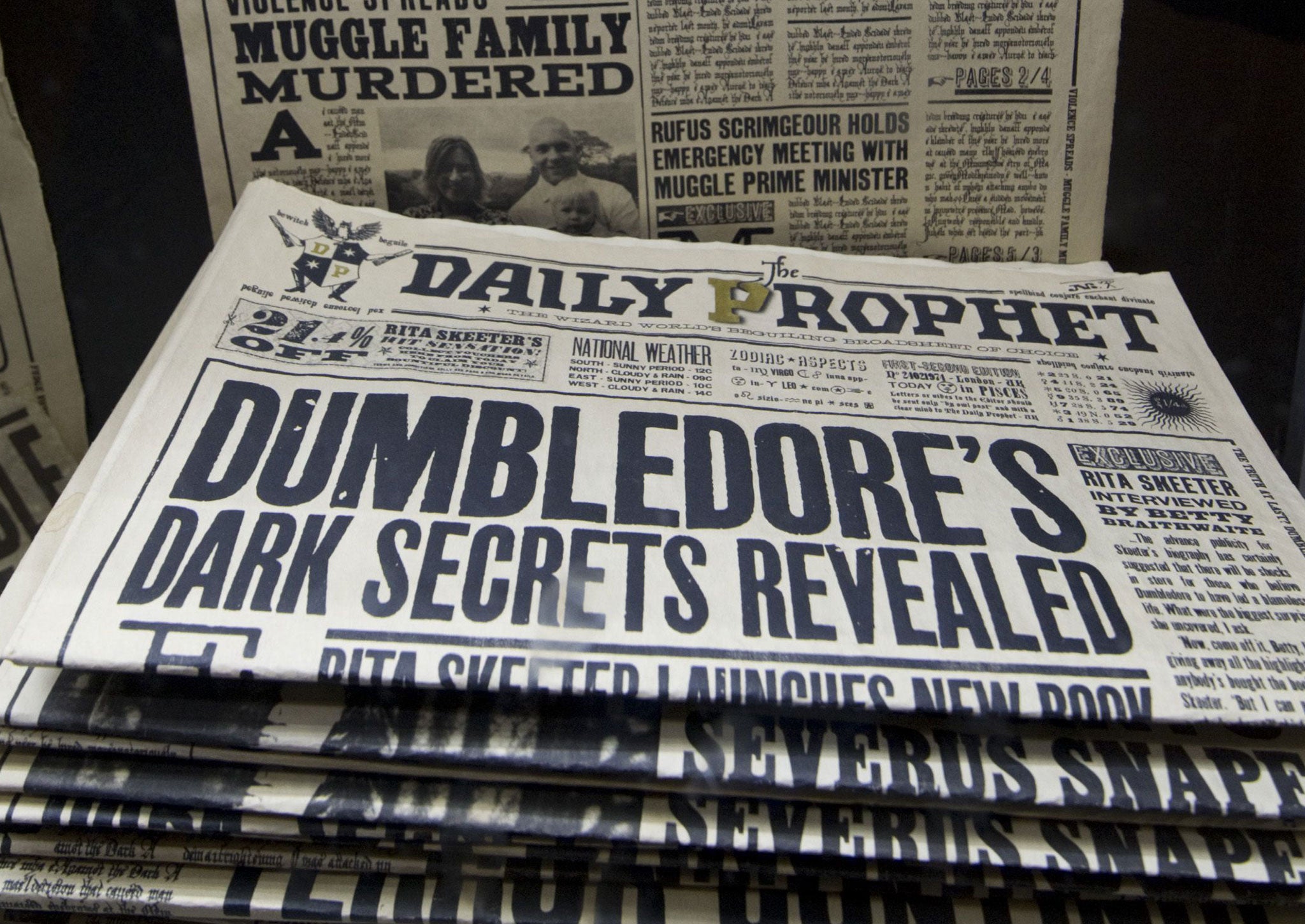The response to the new Harry Potter story by the muggle media is fantastically ironic
The sensationalism surrounding the story would fit right into the Daily Prophet

On page fifteen of my (somewhat worse for wear) 1997 copy of Harry Potter and the Philosopher's Stone, Professor McGonagall prophesises, “there will be books written about Harry — every child in our world will know his name!”
Seventeen years later, her prediction stands as true in the real world as it does in Harry’s. The mania surrounding Harry Potter — for books, films, theme parks, fanfiction, and merchandise—is as fervent as the adoration that surrounds the fictional wizard throughout his life.
This twin sense of celebrity, straddling both fiction and reality, is clearly not lost on Rowling herself. Since 1997, she has become increasingly critical of the hunger for personal details and sensationalisation she saw in tabloid journalism.
It is perhaps unsurprising then, that her latest dip into the magical world — a 1,500 word depiction of the 2014 Quidditch World Cup — is overtly concerned with fame and the media.
A gossip column written in the style of one of Rowling’s most thoroughly hateable yet entertaining characters, journalist Rita Skeeter, it opens: “There are celebrities — and then there are celebrities.”
Ever since her entrance into the Harry Potter series, the dazzlingly nasty Skeeter, complete with crocodile skin handbag, sinister gold teeth and a “savage quill”, has provided a less than subtle satire of the unethical journalistic practices Rowling has vocally critiqued throughout her career.
Skeeter’s habit of “bugging” her subjects (by transforming herself into a beetle and burying into their hair) predicted just the kind of transgressive snooping that Rowling gave evidence against in the 2008 Leveson Inquiry.
The short story does give us a few satisfying glimpses into the lives of our favourite characters. Fans of Quidditch everywhere will be delighted to know that at 37, Viktor Krum is still enjoying a hugely successful career as an international seeker, 20 years after his first appearance on the Bulgarian team at 17.
Those who questioned that Ron, a rather unremarkable student at best, was most suited to a job at the very top of the magical M15, will be relieved to hear that he relocated to the sphere of wizarding confectionary and practical jokes after just two years.
Hermione’s smashing of the enchanted ceiling (she has seen a "meteoric rise to Deputy Head of the Department of Magical Law Enforcement") will satisfy feminist witches from Hogsmede to Little Hangleton.
But mostly, Rowling teases us with the kind of unreliable journalism she so often criticises and satirises, playing with the audience’s desire to always know more. She flirts with superficial details, wildly speculative questions about her subjects’ personal lives (“what really happened” between Harry and Viktor, alone in a maze together for so many hours?) and bitchy asides (“Does Hermione Granger prove that a witch really can have it all? No - look at her hair.")
The Muggle media, like the fans in Skeeter’s column, has shown itself to be “desperate above all else for a glimpse of the man they still call the Chosen One”. Wilfully ignoring the nuances of Rita’s voice to capitalise on the drama of Rowling's unexpected return to the magical world, hundreds upon thousands of words have been quickly whipped up online with a distinctly Daily Prophet style tone.
Despite the fact that, as Harry is still only 34, we can assume that the “couple of threads of silver” Rita spies in his black hair are a typical fabrication on her part. Yet they were pounced on by the British press, which led with headlines that were quick to fixate on the same irresistible surface details. Descriptions of a greying Harry with a mysterious cut, or a bald Ron, crowded the coverage. Some were more sensational: “Is Harry and Ginny’s marriage over?” asked the Telegraph.
The irony is delicious, and precisely what Rowling intended. But her own role in generating a media frenzy from 16 short paragraphs of description is nevertheless beneficial to her.
Her reference to “celebrated Magizoologist” Newt Scamander undoubtedly aims to excite fans who are well aware of her next magical work, a trilogy of films based on Scamander’s life. Her exclusive release of the story on Pottermore will undoubtedly see a flurry of readers sign up to the website.
The “penalty of public interest” aside, “Queen J.K.” continues to be supported by the genuine enthusiasm and love of her fans: as Rita notes, in her column: “anyone closely connected with Harry Potter reaps the benefits.”
Anna Leszkiewicz is a freelance journalist and editor of a pop culture zine, Chew.



Join our commenting forum
Join thought-provoking conversations, follow other Independent readers and see their replies